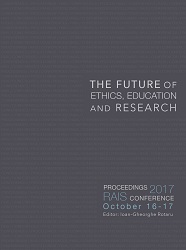Project Sharing: Public Communication and Education as a Tool for Citizenship Guarantee
Project Sharing: Public Communication and Education as a Tool for Citizenship Guarantee
Author(s): Tatyane Ferreira, Alzimar Ramalho, Márcia Marques
Subject(s): Education, Communication studies, Sociology
Published by: Scientia Moralitas Research Institute
Keywords: Communication; Information and Computing (CIC); educommunication; Citizenship; pedagogical model; university extension
Summary/Abstract: The article presented the experiences and results of the pedagogical model developed in the project “Partilhar: Comunicação, Informação e Computaçãopara compartilhamento da cidadania”, translated as Sharing: Communication, Information, and Computing to share citizenship. The research involved four institutions: the University of Brasilia (UnB), the IESB University Center, the JoãoMangabeira Foundation (FJM) and the Paranoá Culture and Development Center(Cedep), all located in Brasília, capital of Brazil. The cross-cutting theme was PublicTransparency - forms of monitoring, use and application of public resources. In the first stage, pedagogical materials were produced and test-workshops were applied focusing on the training of Communication and Information competences in social networks using mobile technologies. The second part consisted of the application of the workshop plan and evaluation of its results and was not yet finalized.The objective was to inform people to use social media in a network from a citizen perspective, guiding participants to learn how they can autonomously acquire the skills and abilities necessary for the practical appropriation of the mechanisms provided by the Brazilian Transparency Law. This “teaching to learn” also proposed that learners become multipliers of knowledge, always shareable and permanently elaborated/reworked by the collective. It was based on the premise that the main obstacles to inclusion need to be overcome in an articulated way: information poverty, digital exclusion, censorship, the political use of technology, misinformation, manipulation of the media and destruction of public information.
Book: The Future of Ethics, Education and Research
- Page Range: 101-109
- Page Count: 9
- Publication Year: 2017
- Language: English
- Content File-PDF

